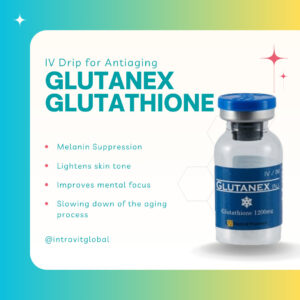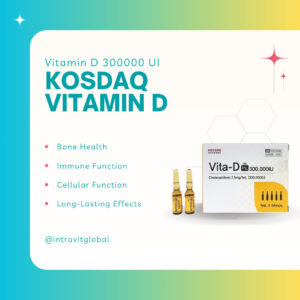Vitamin B12 vs B Complex: Which Supplement Is Right for You?
Table of Contents

Introduction
Vitamins play a crucial role in maintaining our health and well-being, but understanding which vitamins we need can sometimes feel overwhelming. Among the essential vitamins, the B vitamins are particularly important for energy production, brain function, and overall vitality. Two of the most commonly discussed supplements in this category are Vitamin B12 and B Complex. But how do you know which one is right for you? This article will help you understand the differences between Vitamin B12 and B Complex, their benefits, and when each might be the better choice for your specific needs.
Understanding Vitamin B12
What is Vitamin B12?
Vitamin B12, also known as cobalamin, is a water-soluble vitamin that plays a key role in the production of red blood cells, DNA synthesis, and the proper functioning of the nervous system. Unlike other B vitamins, B12 is unique because it is stored in the liver, making it possible for your body to have reserves that can last several years.
Sources of Vitamin B12
Vitamin B12 is naturally found in animal products such as meat, fish, poultry, eggs, and dairy. It can also be found in fortified foods like cereals and plant-based milk, making it accessible for those on a vegetarian or vegan diet, although supplementation is often recommended for these groups.
Role of Vitamin B12 in the Body
Vitamin B12 is vital for maintaining healthy nerve cells, supporting brain function, and aiding in the production of DNA and red blood cells. It also helps prevent a type of anemia called megaloblastic anemia, which can make people feel tired and weak.
Symptoms of Vitamin B12 Deficiency
A deficiency in Vitamin B12 can lead to a range of symptoms, including fatigue, weakness, constipation, loss of appetite, weight loss, and neurological changes such as numbness and tingling in the hands and feet. Severe deficiency can cause more serious problems like memory loss, confusion, and even dementia.
Understanding Vitamin B Complex
What is Vitamin B Complex?
Vitamin B Complex is a group of eight essential B vitamins, each with its own unique role in maintaining good health. These vitamins work together to support energy production, brain function, and cell metabolism. The B Complex includes B1 (thiamine), B2 (riboflavin), B3 (niacin), B5 (pantothenic acid), B6 (pyridoxine), B7 (biotin), B9 (folate), and B12 (cobalamin).
Components of B Complex Vitamins
- B1 (Thiamine): Helps convert nutrients into energy.
- B2 (Riboflavin): Involved in energy production and cellular function.
- B3 (Niacin): Supports digestive system, skin health, and nervous system function.
- B5 (Pantothenic Acid): Essential for synthesizing coenzyme A.
- B6 (Pyridoxine): Important for amino acid metabolism and red blood cell production.
- B7 (Biotin): Vital for carbohydrate, fat, and protein metabolism.
- B9 (Folate): Crucial for DNA synthesis and repair, and red blood cell formation.
- B12 (Cobalamin): Works with folate to produce DNA and red blood cells.
Sources of B Complex Vitamins
B Complex vitamins are found in a variety of foods, including whole grains, meat, eggs, dairy products, legumes, seeds, nuts, leafy greens, and fortified foods. Given the wide range of sources, a well-balanced diet usually provides enough of these vitamins, although some people may need supplementation.
Role of B Complex in the Body
B Complex vitamins are essential for converting food into energy, supporting brain function, and maintaining healthy skin, hair, and eyes. They also play a role in preventing infections and promoting cell health.
Comparing Vitamin B12 and B Complex
Key Differences between Vitamin B12 and B Complex
The primary difference between Vitamin B12 and B Complex is that B12 is a single vitamin, while B Complex is a combination of several B vitamins, including B12. While both are essential, they serve slightly different purposes. Vitamin B12 is more specialized, particularly important for nerve function and red blood cell formation, whereas B Complex supports overall energy production and metabolism.
Benefits of Taking Vitamin B12
Vitamin B12 supplements are especially beneficial for those who are deficient in this vitamin, including older adults, vegetarians, vegans, and people with absorption issues. Supplementing with B12 can improve energy levels, enhance mood, support cognitive function, and reduce the risk of certain types of anemia.
Benefits of Taking B Complex
Taking a B Complex supplement can be beneficial for overall health, particularly if you’re at risk of a deficiency due to diet, stress, or certain health conditions. B Complex vitamins can help boost energy levels, improve mood, reduce stress and anxiety, and support heart and brain health.
When to Choose Vitamin B12
Who Should Consider Vitamin B12 Supplements?
Vitamin B12 supplements are particularly important for individuals who are at risk of deficiency, including those over 50, vegetarians, vegans, and people with gastrointestinal disorders like Crohn’s disease or celiac disease. Pregnant and breastfeeding women may also require extra B12.
Specific Health Conditions Requiring Vitamin B12
Certain health conditions, such as pernicious anemia, atrophic gastritis, and other absorption disorders, specifically require B12 supplementation. B12 is also crucial for individuals who have undergone gastric surgery or those on long-term antacid therapy, as these conditions can impair B12 absorption.
Recommended Dosage for Vitamin B12
The recommended daily allowance (RDA) for Vitamin B12 varies depending on age and life stage. For adults, it’s typically 2.4 micrograms, but higher doses may be recommended for those with a deficiency or absorption issues. Always consult a healthcare provider for personalized advice.
Possible Side Effects of Vitamin B12 Supplements
Vitamin B12 is generally safe and well-tolerated, even at high doses. However, some people might experience mild side effects such as headache, nausea, or diarrhea. It’s always best to consult with a healthcare professional before starting any new supplement.
When to Choose B Complex
Who Should Consider B Complex Supplements?
B Complex supplements are ideal for individuals who are under a lot of stress, athletes, pregnant women, or those with certain health conditions that deplete B vitamins. They’re also beneficial for anyone who might not be getting enough of these vitamins through diet alone.
Specific Health Conditions Requiring B Complex
People with certain conditions like chronic fatigue syndrome, migraines, and cardiovascular issues might benefit from B Complex supplementation. It’s also recommended for those recovering from surgery or illness, as the need for B vitamins increases during recovery.
Recommended Dosage for B Complex
The dosage for B Complex supplements can vary widely depending on the specific product and individual needs. Generally, the dosage is based on the RDA for each B vitamin. It’s important to follow the dosage instructions on the supplement label or as directed by a healthcare provider.
Possible Side Effects of B Complex Supplements
Most people tolerate B Complex supplements well, but high doses can cause side effects like skin flushing, especially with niacin (B3), or an upset stomach. In rare cases, high doses of certain B vitamins might cause nerve damage. Therefore, it’s crucial to stick to recommended doses.
Special Considerations for Vegetarians and Vegans
Challenges in Getting B12 for Vegetarians and Vegans
Since Vitamin B12 is primarily found in animal products, vegetarians and vegans are at a higher risk of deficiency. While fortified foods can help, a B12 supplement is often necessary to meet daily needs.
Importance of B Complex for Plant-Based Diets
For those following a plant-based diet, a B Complex supplement can help ensure they’re getting adequate amounts of all B vitamins, which are essential for energy production, brain function, and overall health.
B12 vs. B Complex for Energy Levels
How B12 Affects Energy and Mood
Vitamin B12 is known for its role in energy production. A deficiency can lead to fatigue and low energy levels. Supplementing with B12 can improve energy, enhance mood, and help combat fatigue.
How B Complex Affects Energy and Stress Levels
B Complex vitamins work together to convert food into energy and support the body’s response to stress. They are often used to help manage stress, improve mental clarity, and sustain energy levels throughout the day.
Impact on Mental Health
The Role of Vitamin B12 in Mental Health
Vitamin B12 is crucial for brain health and cognitive function. A deficiency can lead to mood disturbances, memory issues, and even depression. Ensuring adequate B12 intake is important for maintaining mental well-being.
The Role of B Complex in Cognitive Function and Mental Well-being
B Complex vitamins, particularly B6, B9, and B12, are essential for brain health. They support neurotransmitter production, help regulate mood, and are linked to a lower risk of cognitive decline and mental health disorders.
B12 vs. B Complex for Immune Support
How Vitamin B12 Supports the Immune System
Vitamin B12 helps produce white blood cells, which are crucial for immune function. A deficiency can weaken the immune system, making the body more susceptible to infections.
How B Complex Boosts Immunity
B Complex vitamins play a significant role in maintaining a healthy immune system. They help the body produce and maintain healthy cells, which are vital for immune defense.
Considerations for Age and Lifestyle
Vitamin B12 Needs for Different Age Groups
As people age, their ability to absorb Vitamin B12 decreases, making supplementation more important for older adults. Younger individuals might also need B12 if they follow restrictive diets or have certain health conditions.
B Complex Needs Based on Lifestyle Factors
Individuals with high stress levels, those who engage in intense physical activity, or those with poor dietary habits may benefit from a B Complex supplement to support their overall health and energy levels.
B12 vs. B Complex for Pregnancy
Importance of B12 during Pregnancy
During pregnancy, Vitamin B12 is vital for the development of the baby’s nervous system and to prevent birth defects. Pregnant women should ensure they are getting enough B12, either through diet or supplementation.
Role of B Complex in Prenatal Health
A B Complex supplement is often recommended during pregnancy to support the increased nutritional needs of both the mother and the developing baby. Folate (B9) is particularly important to prevent neural tube defects.
Cost and Accessibility
Cost Comparison of Vitamin B12 vs. B Complex Supplements
Generally, B Complex supplements are more expensive than Vitamin B12 alone because they contain multiple vitamins. However, the cost will vary depending on the brand, dosage, and form of the supplement.
Accessibility and Availability of Each Supplement
Both Vitamin B12 and B Complex supplements are widely available at pharmacies, health food stores, and online. They come in various forms, including tablets, capsules, sublingual drops, and injections.
How to Choose the Right Supplement
Factors to Consider When Choosing Between B12 and B Complex
When deciding between Vitamin B12 and B Complex, consider your dietary habits, lifestyle, health conditions, and specific needs. If you have a confirmed B12 deficiency, a B12 supplement might be sufficient. However, if you’re looking to improve overall health and energy levels, a B Complex might be the better choice.
Consulting with a Healthcare Professional
Before starting any new supplement, it’s important to consult with a healthcare professional. They can help determine if you have a deficiency, recommend the right dosage, and advise on the best form of the supplement for your needs.
Conclusion
Choosing between Vitamin B12 and B Complex supplements depends on your individual health needs, diet, and lifestyle. Vitamin B12 is crucial for nerve health and red blood cell production, especially for those at risk of deficiency. On the other hand, B Complex provides a comprehensive range of B vitamins that support overall health, energy production, and stress management. For most people, B Complex offers broader benefits, but if you’re specifically deficient in B12, that should be your focus. Ultimately, the best approach is to assess your needs and consult with a healthcare provider to make an informed decision.
FAQs
Can I Take Vitamin B12 and B Complex Together?
- Yes, you can take both together. B Complex contains B12, so taking them together is safe and can provide comprehensive benefits.
How Long Does It Take to See Benefits from These Supplements?
- It can take a few weeks to notice improvements, but it varies depending on your health status and the severity of any deficiency.
Are There Any Natural Alternatives to B12 and B Complex Supplements?
- Yes, a balanced diet rich in animal products, whole grains, and fortified foods can provide these vitamins, but supplements are helpful if your diet is lacking.
What Happens if I Overdose on B12 or B Complex?
- B vitamins are water-soluble, so the body typically excretes any excess. However, very high doses can cause side effects like nerve damage (in the case of B6).
How Can I Know If I’m Deficient in B12 or B Complex?
- A blood test ordered by your healthcare provider is the most accurate way to determine if you’re deficient. Symptoms like fatigue, weakness, or mood changes can also indicate a deficiency.
-
Vitamin Drips
Glutanex Glutathione 1200mg IV Drip for Antiaging, Melanin Suppression, Antioxidant Skin Brightness Benefits
£20.00 – £120.00 Select options This product has multiple variants. The options may be chosen on the product pageRated 0 out of 5 -
Vitamin Drips
Asconex Vitamin C (Ascorbic Acid) IV Drip for Antiaging, Melanin Suppression, Antioxidant and Skin Brightness Benefits
£10.00 – £70.00 Select options This product has multiple variants. The options may be chosen on the product pageRated 0 out of 5 -
Vitamin Drips
Kosdaq Vitamin D 300000 IU Cholecalciferol per vial box of 10 ampoules
£20.00 – £140.00 Select options This product has multiple variants. The options may be chosen on the product pageRated 0 out of 5
Checkout our Facebook Page and leave your review about our Health Care Products.






